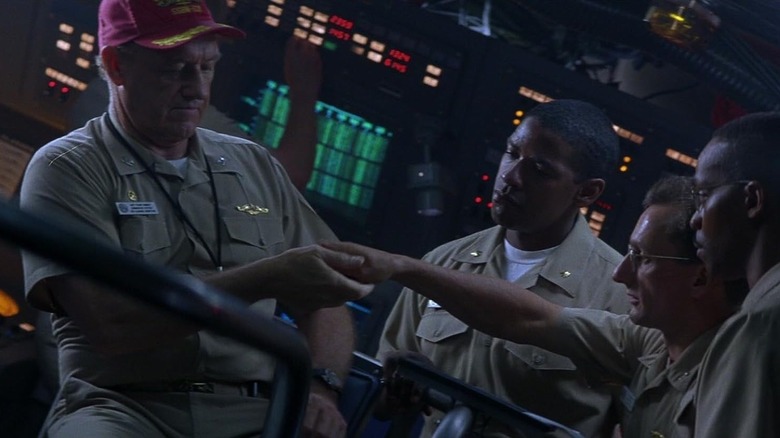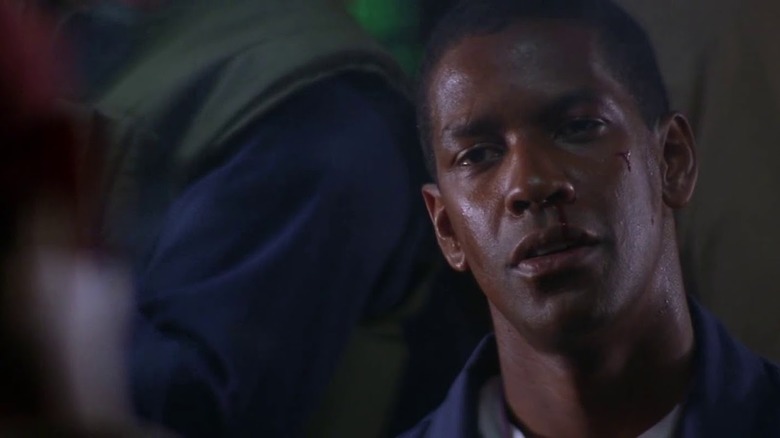Buena Vista Pictures Distribution
Quentin Tarantino, acclaimed as one of the world’s finest filmmakers, is not without controversy. Over the years, he’s earned a reputation for being combative, holding grudges against actors, executives, and critics alike. He even had a physical altercation with producer Don Murphy at a restaurant in West Hollywood. Despite his fiery temperament, those who have worked with him speak highly of his passion for cinema. He may be demanding and intense, but his love for filmmaking is infectious, and he wants everyone involved in his projects to share that enthusiasm.
There was a period in Tarantino’s career, however, that could be described as his “brat phase.” This phase seemed to toggle on and off between his Cannes victory in 1994 with “Pulp Fiction” and the pre-production of “Kill Bill.” During this time, Tarantino appeared to be teetering on the edge of becoming a professional talk show guest. He was a master at stirring the pot and often left interviewers wondering if they were being considered for a role in his next film.
At this point, Tarantino was in high demand, and he was more than willing to share his talent for the right price. Jerry Bruckheimer, in particular, was captivated by his knack for creating unique, pop culture-infused dialogue. Bruckheimer wanted to infuse his blockbuster action films with Tarantino’s distinctive style. The collaboration wasn’t seamless, but it did yield sharp, engaging writing. However, during the production of Tony Scott’s “Crimson Tide,” Tarantino’s penchant for controversy resulted in a lengthy feud with leading man Denzel Washington.
Debating the color of horses on the cusp of World War III

Buena Vista Pictures Distribution
The specific scene that sparked Washington’s ire has never been definitively identified, but it’s likely the dialogue between Washington’s character, XO Ron Hunter, and Gene Hackman’s character, CO Frank Ramsey. In the film, a high-stakes submarine thriller, the plot revolves around an incomplete order that could potentially override a previous directive to launch nuclear missiles. Ramsey advocates for action, while Hunter insists on verifying the second order before potentially initiating World War III. A mutiny ensues, resulting in a tense standoff as both men await the final order via the newly repaired radio.
During this wait, Ramsey, who has been consistently antagonizing his XO throughout the film, brings up the topic of Lippizaner stallions. These horses are known as the most highly trained in the world and, as Ramsey pointedly remarks, they are all white. Hunter concedes this point but adds that they are born black.
This is where “Crimson Tide” takes an unexpected turn, and I’m still unsure how I feel about it. Up until this point, I viewed Ramsey as a harsh CO, but one who, based on his character’s backstory, deserved some level of respect. The military hierarchy in any country is filled with individuals like this, and from a distance, it can almost seem charming.
However, when a racial element is introduced into the film in its final minutes, it alters the perception of Hackman’s character and, to a certain extent, the overall direction of the movie. The decision to wait for the second order was a sensible one. So, did Ramsey insist on launching the missiles because he couldn’t stand the idea of being proven wrong by a Black man? Probably not, but now the question has been raised, seemingly because Tarantino wanted to incorporate a variation on Dennis Hopper’s Sicilians monologue from “True Romance.”
Perhaps Scott, who also directed “True Romance,” requested this addition? I can’t say for sure. All I know is that I find the scene off-putting, and for a long time, Washington felt the same way.
Letting old Lippizaners lie

Buena Vista Pictures Distribution
As people age, they often become more forgiving. What might have felt like a call to duel at 25 could seem inconsequential when your main concern is getting to Perkins in time for the early bird special.
This appears to be the case with Washington and his disagreement with Tarantino. In 2012, during an interview with GQ, Washington revealed that his daughter was working on “Django Unchained.” The reporter expressed surprise, recalling the tension on the set of “Crimson Tide.” Washington responded:
“Isn’t that interesting how life goes? But I buried that hatchet. I sought him out 10 years ago. I told him, ‘Look, I apologize.’ You’ve just gotta let that go. You gonna walk around with that the rest of your life? He seemed relieved. And then here we are 10 years later, and my daughter’s working with him. Life is something.”
Washington makes a valid point. While I still question Tarantino’s judgment in this matter (assuming this was the scene in question, which it must be unless another racially charged scene was cut from the film), his role as a writer was to subtly heighten the emotional tension while two men quietly await an order. Any major revelation, such as Ramsey revealing that he attended Auburn, would have thrown the film off balance. The scene bothers me, but primarily because I expect more from Tarantino.
Credit: www.slashfilm.com


